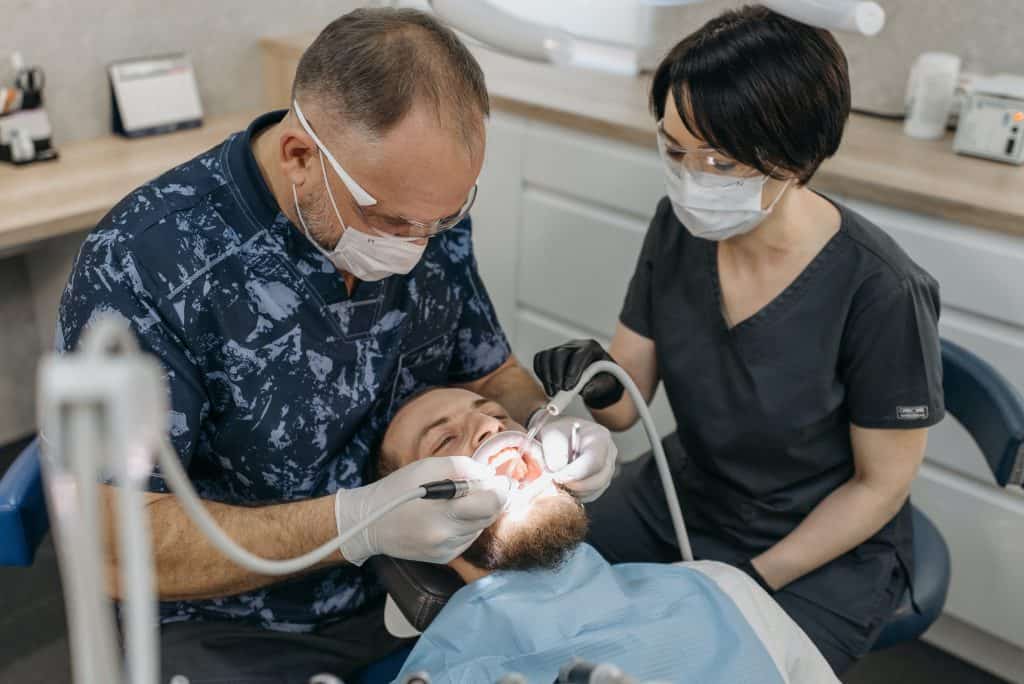If you enjoy working with people and want to get involved in the medical field but want to work in a smaller setting, then consider a career as a dental hygienist. The demand in this field is increasing, and there are various types of positions that you can look at after obtaining your degree. There are a few requirements that you need to meet if you want to work as a hygienist as the courses and clinical work that you do will help you learn about oral care and overall oral health so that you can better treat your patients.
Responsibilities
While working as a dental hygienist, you’ll be responsible for teeth cleanings and inspecting the teeth and gums before the dentist performs an examination. You’ll usually work with the dentist when fillings and other dental procedures are performed. Sometimes, you’ll educate patients about how to care for their teeth by demonstrating how to clean and floss them. While working with patients, especially children and those who have a fear of going to the dentist, you need to have patience and be able to offer comfort. You should also be able to carefully use multiple tools at one time while working in a small space. It’s also beneficial to have good communication skills so that you can talk to patients in the exam room.
The primary responsibility of a hygienist is cleaning the teeth and removing tartar and plaque. You’ll usually perform X-rays, conduct basic exams, and help give anesthetics for procedures. Other responsibilities include applying fluoride treatments, documenting the health details of each patient, and alerting the dentist about any issues that are seen.
Education and Programs
In order to work as a dental hygienist, you need to obtain an associate’s degree and take any exams that are required by your state. If you want to advance your career, then you should try to obtain a bachelor’s or master’s degree, especially if you want to be a dentist instead of a hygienist or an assistant. With a higher degree, you can expand your profession to include teaching and researching various topics that pertain to dentistry.
When you’ve decided that dental hygiene is a career that you think that you might enjoy, you should begin looking for schools in your area that offer the program that you’ll need as not every college might offer these programs. You need to make sure the school is accredited in the field. There are also a few other factors to consider.
Proximity
Look at where the school is located. If you don’t want to live on a college campus or if you don’t want to rent an apartment or your own home, then you want to find a school that’s close enough to where you live so that you can drive back and forth. Some schools offer classes online, but keep in mind that you might have to go to the school to complete hands-on skills or to take exams.
Accredited Programs
The program that you select should be offered at an accredited school. This means that the program has been officially declared and recognized as one for dentistry. The agency that offers accreditation for schools to offer dental hygiene courses is CODA. If you don’t see this agency listed, then you want to look for other schools that do offer the program that’s been approved by this agency.
Program Types
A basic program to get into for dental hygiene is entry-level. This is an option for when you’re just out of high school or if you’ve decided to change careers and get into something new and don’t have any experience. You’ll usually obtain your associate’s degree during this level. You can also complete a degree program, especially if you want to further your education to obtain a bachelor’s or master’s degree. This program is usually for those who have already obtained a certification or even those who have obtained an associate’s degree and want to continue. The graduate program is usually for those who want to obtain a master’s degree. This program can be challenging, but you’ll have more career options and will likely see a higher annual salary compared to obtaining an associate’s degree and working in a dental office.
Related Articles:
